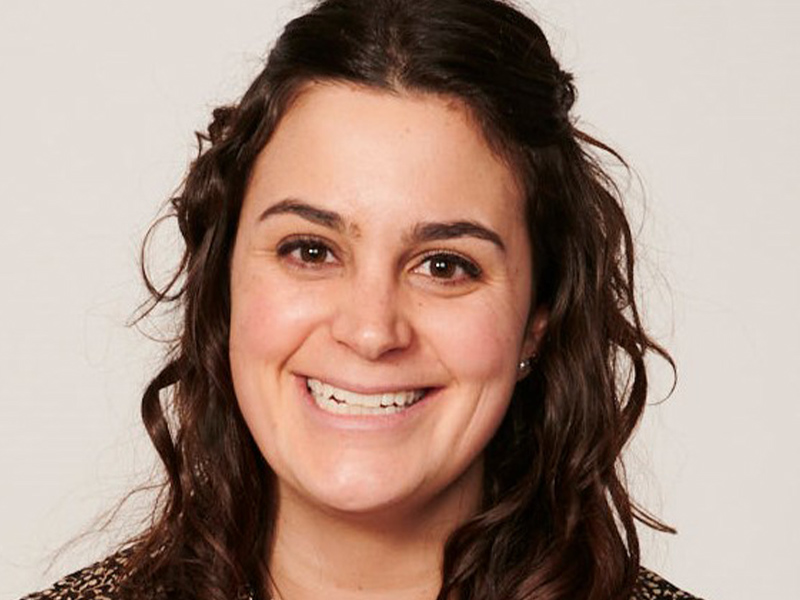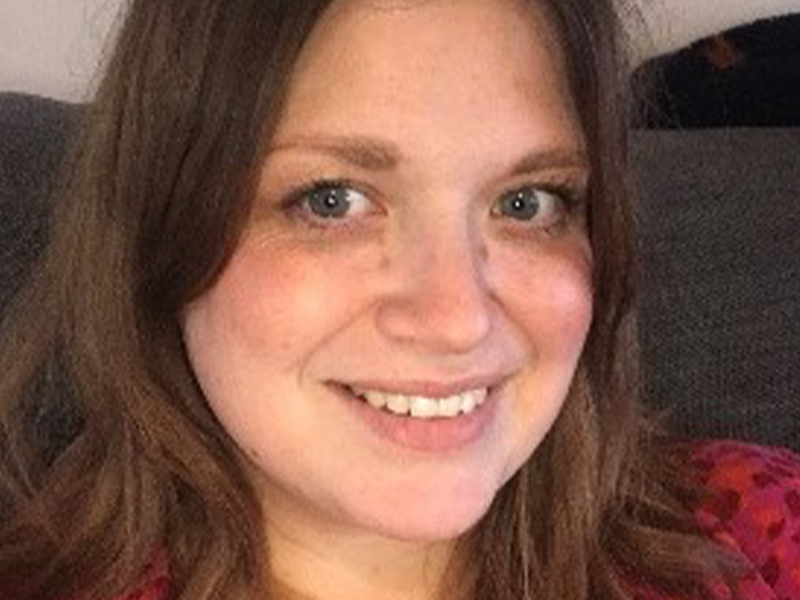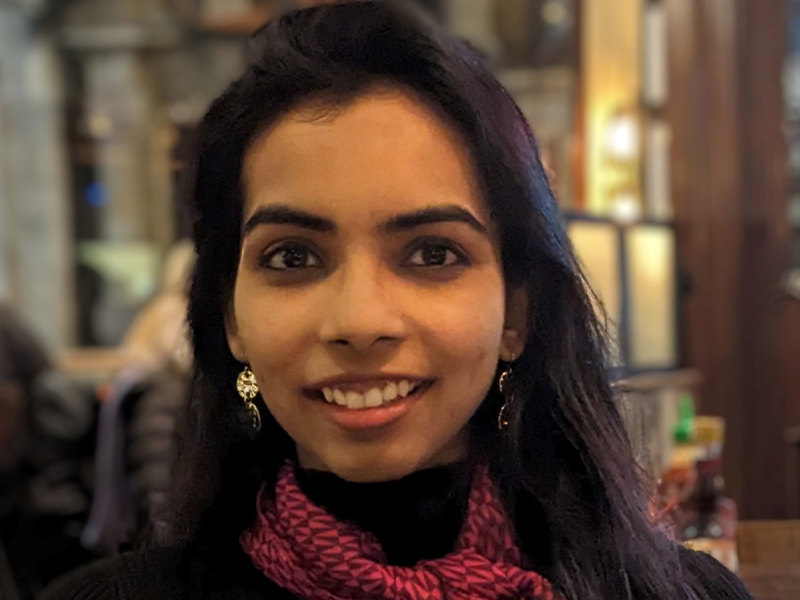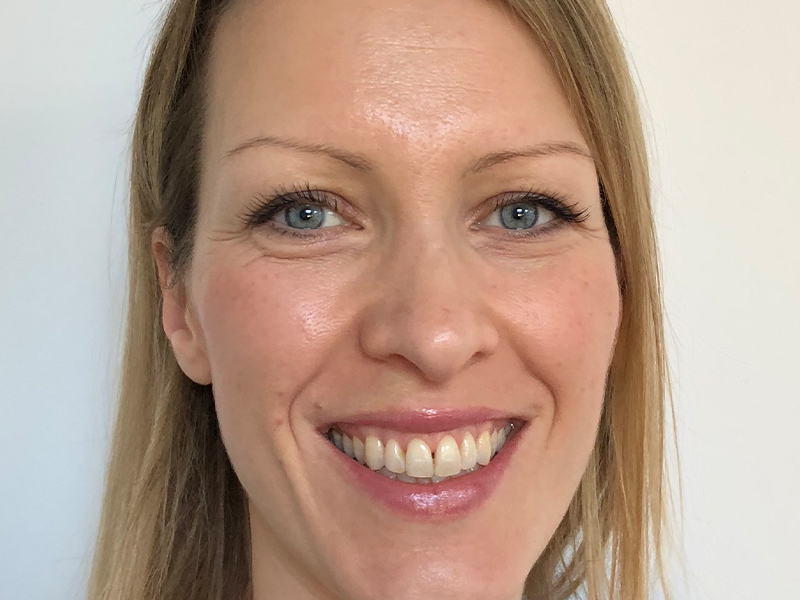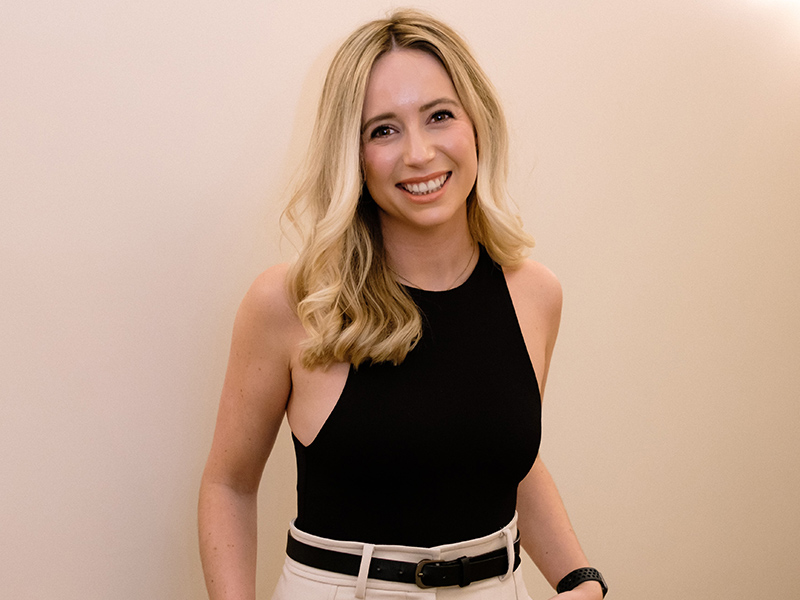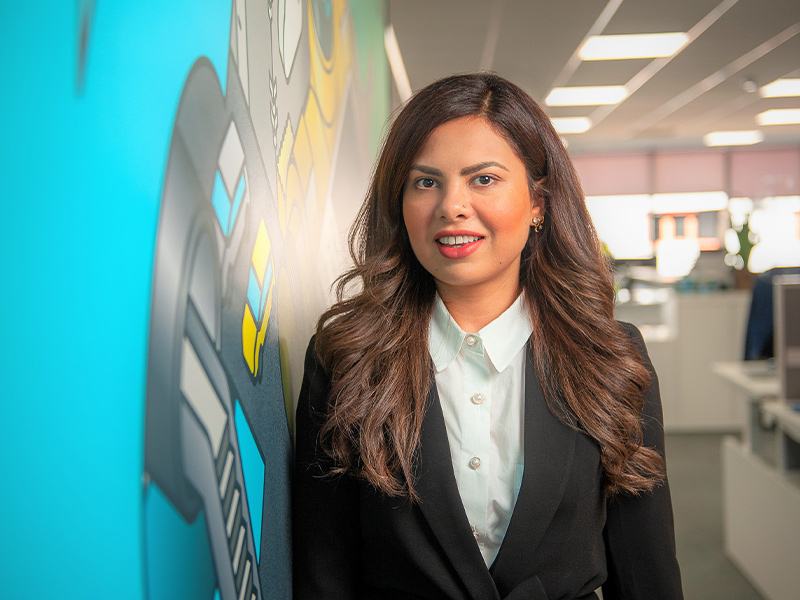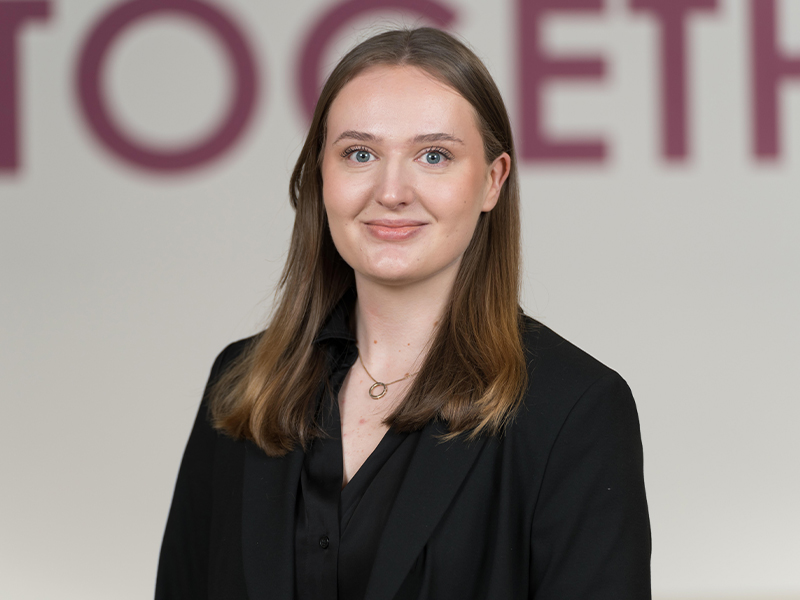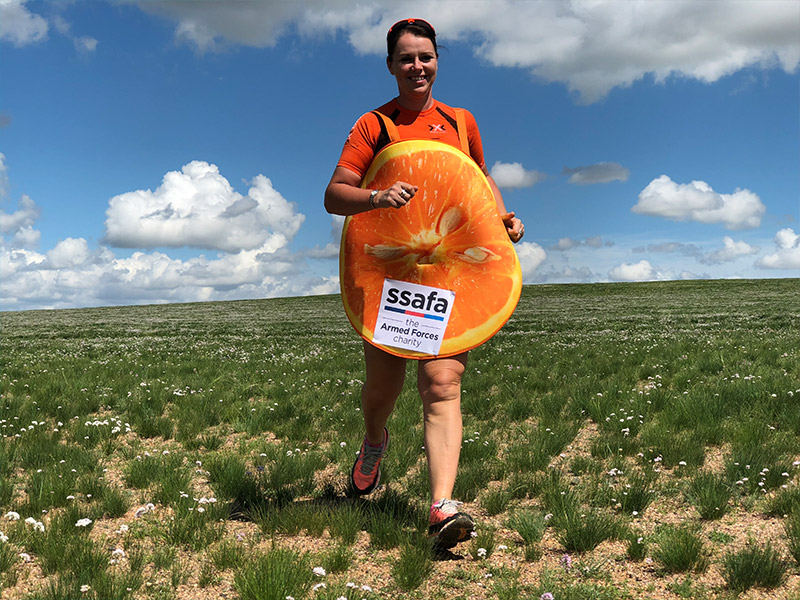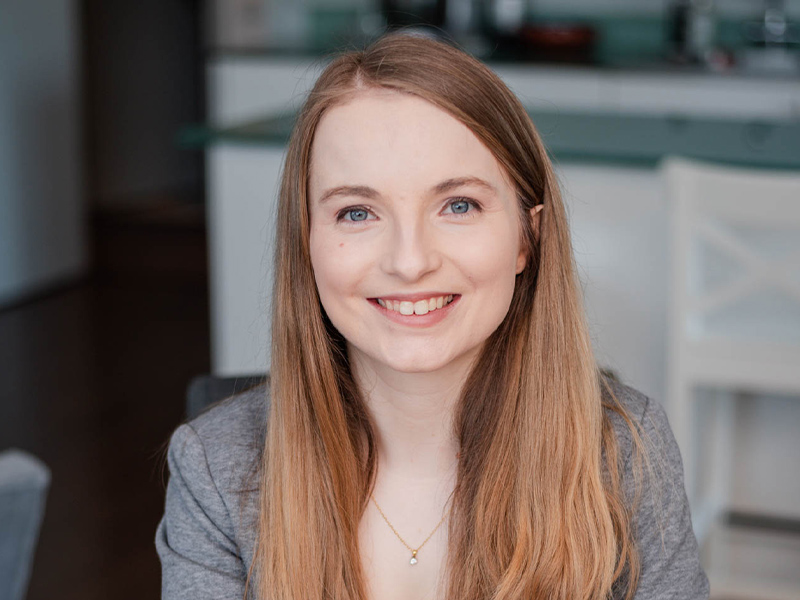Jacquelyn Fisher | Senior Project Engineer | bp
Jacqui Fisher is a project manager at bp with 9 years of experience delivering subsea projects.
Jacqui moved from the United States to the United Kingdom to attend Newcastle University where she obtained her master’s in chemical engineering. Whilst at bp she has been able to put her passion into leading teams and collaborating with suppliers into day-to-day action.
Jacqui has worked on projects spanning Egypt, North Sea, and Angola. Over her career, she’s taken on more responsibility and ownership, progressing from delivering major packages of a subsea equipment through to delivering a full project from concept through to production.
She started delivering various pieces of complex subsea hardware which are deployed on the seabed and control the flow of oil and gas to the processing facility for the WND project in Egypt. Then she moved to the North Sea, where she led internal and contractor teams to deliver operational support for subsea equipment leading to process and performance improvements. Off the back of this success in 2020 with less than 7 years of experience she was selected to lead the PSVM Infill Project in Angola, a three well subsea tie-in to existing infrastructure. Leading the project to an execute stage gate within nine months. She continued to lead the project through to a successful conclusion just 2 years after the Final Investment Decision the first well was brought online followed in quick succession by the other two wells. Most importantly the project was delivered with zero accidents or incidents.
Laura Brock | CfD Delivery Manager | National Grid ESO
Laura is the Contracts for Difference Delivery Manager within National Grid Electricity System Operator (ESO), leading a team and working closely with the government to support new low carbon electricity generation projects.
She has over 16 years’ experience within the electricity business; in commercial, strategic and operational roles. Laura holds a degree in Law and before transitioning to the wider ESO business, undertook further legal training, with the completion of the Legal Practice Course.
Shruthi Govindarajan | Structural Engineer - II | Worley
While at school, Mathematics was my favourite subject and my strength in analytical skills and logical thinking were primary motivation factors for me to pursue Engineering as a profession.
I was fortunate to succeed in IITJEE, considered one of the toughest entrance examinations in India for admission into Engineering, and joined IIT Madras to pursue Civil Engineering. And here I am 11 years later still passionate about the subject and keen to make a difference in the field of Engineering.
I am a Structural Engineer with over seven years of global engineering and site experience and my role enables me to bolster the industry’s collective work to secure energy resilience by exploring and designing renewable sources of energy, and by sustainably extending the life of our current energy assets.
Through my career, I have had the opportunity to work with various clients such as TOTAL, Shell, Neptune, BP, Aramco with projects in various locations including North Sea, Saudi Arabia, Gulf of Mexico, etc. In my current role, I am part of the Advanced Analysis team and I help clients solve advance and complex problems in offshore energy platforms. My most recent work involved helping one of the clients to increase gas exports in an existing offshore platform by performing structural integrity checks and thus contributing to the sustainability of the asset.
I am also co chairing the Women's network at Worley and an advocate for diversity and inclusion in the workplace.
Aasha Marenghi | Subsea Project Manager | bp
Aasha is a Subsea Project Manager for bp, leading a global project team to deliver the subsea production system for bp’s complex ultra-deepwater gas project offshore Mauritania and Senegal.
With a background in mechanical and subsea engineering, for the last fifteen years she has held a variety of subsea project management roles in bp and the energy industry, with a strong track record of major project deliveries in West Africa and Egypt.
She has a passion for project leadership, leading teams to tackle complex challenges, and creating team spirit and purpose around a project mission.
Throughout her career, Aasha has built trust and respect through authentic and inclusive relationships across a diverse network. She prides herself in creating a mutually supportive and psychologically safe environment for her team to operate in, and in providing space for individuals to work flexibly to be at their best.
Aasha has been part of the working group for bp’s ‘Women in Projects’ community, organising and hosting network events; and is also a coach and facilitator for bp’s project management training courses.
She is a Chartered Engineer with the Institute of Mechanical Engineers, and a Chartered Project Manager with the Association of Project Managers.
Alexandra Lawson | Commercial Advisor - Integrated Energy Solutions Europe | Shell UK
After first thinking a career in dentistry was what her future had in store, one work experience week and root canal treatment later, Alexandra changed her mind and explored what the world of STEM had to offer.
Growing up in Glasgow, Alexandra was far removed from the world of oil and gas three hours north, but through influential role models and supporters, Alexandra graduated with a Masters in Chemical Engineering from the University of Strathclyde and has since found herself immersed in the energy industry.
Skilled in supply chain optimisation and operational strategy, Alexandra has had a fantastic career in the energy sector to date. Having started her career as an operations engineer, Alex now combines her frontline experience with her commercial acumen, working as a Commercial Advisor within the Integrated Energy Solutions team at Shell, helping customers decarbonise through onsite energy solutions to achieve their net zero ambitions.
Outside of her 9-5 responsibilities, Alexandra is passionate about advocating for the future pipeline of STEM talent. She channels enthusiasm through her additional responsibilities as a member of the Women in Science & Engineering Young Professional’s Board and sponsorship of Northeast Scotland College’s Girls in Energy Program.
Throughout Alexandra’s education, her favourite part of attending industry presentations was watching someone present, feeling completely inspired and thinking “one day, I want to be like them.” She is on a mission to be that role model for others and to light their spark for science and engineering, just like others did for her.
Marsha Castello | Data Analyst | UK Civil Service
I am a Data Analyst within the UK Civil service where I help to translate data into valuable insights and Business Intelligence.
I am also a trainee Software Engineer with Xuntos. I champion workplace wellbeing through different initiatives as a trained Mental Health First Aider. I am a UN Women UK Delegate to the Commission on the Status of Women, the largest annual gathering of gender equality advocates in the world, where I will continue to champion equity and access to life changing technology for women. Over the last 8 months I have battled various personal and life challenges to take charge of my career and complete an intensive 16-week Python Software Engineering Bootcamp with Firebrand, and an intensive 6-week, 60 hours + Advanced Data Analyst Bootcamp, with Fast Futures. While completing the Advanced Data Analyst Bootcamp I also completed two further courses concurrently: Code First Girls 8-week Introductions to Python and Apps, and Data and SQL. I achieved Microsoft Certified: Azure Fundamentals, I am also due to complete the globally recognised PCEP Python exam. I successful secured mentorship and a supportive network through Cajigo and BGIT. Post courses I have completed my own projects and shared my learning on LinkedIn. I have continuously sought to share my knowledge with others through peer mentoring, and further sharing my story and resources through published articles and blogs, I have become a STEM Ambassador and Mentor empowering school children from disadvantaged backgrounds into tech. I enjoy Pilates, theatre, sci-fi movies, and live music.
Pasha Khan | EMEA Strategy & Transformation Lead | RWC
As a Strategy & Transformation Lead with expertise in Organisational Design, M&A Integration, Enterprise Application Implementation, and Business Change Management, I have had a diverse and rewarding career to date.
My previous experience in Lean and Six Sigma tier 1 initiatives in the manufacturing sector has been instrumental in delivering tangible financial, operational, and efficiency-driven metrics in global organisations.
Throughout my career, I have had the opportunity to work with a wide range of businesses and industries, which has allowed me to develop strong communication, emotional intelligence, and influence skills. These skills have enabled me to effectively turn business vision into operational excellence, and I am proud of the positive impact my work has had on organisations and their stakeholders.
As a Strategy & Transformation Lead, I have had the opportunity to work on some of the most complex and challenging projects in the industry. Whether it's designing and implementing new organisational structures, integrating acquired businesses, or implementing enterprise-wide applications, I have consistently demonstrated an ability to deliver high-quality outcomes on time and on budget.
One of my key strengths is my ability to understand the unique global challenges facing each organisation and develop tailored solutions that address their specific needs. This has enabled me to build strong relationships with clients and stakeholders, and to deliver projects that are truly transformative for the businesses I work with.
Martyna Adam | Senior Data Analyst | Grayce
I am a Senior Data Analyst at Grayce, but I have only started my career in data 16 months ago.
I come from a non-technical background, and after graduating with a BSc in Psychology and a MSc Research Methods in Psychology, I decided to take a leap of faith and switch my career into data. From there, I began a journey of hard work and determination to upskill in technical areas and navigate the ever-changing world of data and technology.
My core responsibilities lie in delivering excellence for my client, and utilising my technical and soft skills to help my clients make data-driven business decisions. Currently, I am working in the legal industry for a Magic Circle law firm, supporting on an industry-leading innovative programme of firm-wide scale.
Outside of core client commitments, I'm a Lead for the Digital Community of Practice, a mentor across several schemes, a co-host of monthly Data community calls, and a committee member for a Skills Club designed to promote technical skill development through practical projects. I also helped organise a week-long digital festival, with external speakers and live coding demonstrations, to promote knowledge exchange within the company.
In my spare time, I'm a Trainee Instructor for Code First Girls, a Medium writer and author of 'From A to SQL' series, and take part in projects and events that promote the visibility of role models in data and technology. My overarching aim is to continue to inspire women to pursue careers in data and technology.
Sally Orange | Mental Health Campaigner | Sally Orange Ltd
Sally Orange is a physiotherapist and dedicated mental health campaigner.
Having hidden her own battles with severe depression and chronic anxiety for over 20 years, she now speaks openly in person and through social media of her challenges, in an attempt to remove associated stigma.
She also encourages others to manage their own mental well being through physical activity and is the only person on the planet to complete a marathon on every continent in fancy dress (as different pieces of fruit!) , with the specific purpose of breaking the stigma.
By taking on physical challenges, dressed as fruit, she never fails to make people smile. More seriously however, she is often asked why she is dressed in the colourful costumes. When she tells of her dedication to break the stigma associated with mental illness, people often open up and talk about their own struggles or how they know someone who has or is currently having difficulties with their mental health.
It subtly starts a conversation, while also proving you don’t have to be the fastest or the fittest to gain a sense of achievement from physical activity.
From running a marathon in a pod of the London eye, symbolising the ups and downs the pandemic had on the Nations mental health to another underground deep in a mine, which she named 'beneath the surface', as you never know what is going on in someone else's mind, Sally always seeks to give purpose to her challenges for the benefit of others.
Sarah Zarywacz | Meetings & Events Operations Manager | BCG
Sarah is a multi-award winning corporate event manager and marketer, passionate about furthering industry DE&I and ESG progress, and growing others to achieve success on their own terms.
Following a degree in French and German, Sarah embarked on a career as corporate EA before uncovering her passion for marketing and events. Having since worked in global teams, built event functions and strategically professionalised event programmes, Sarah has simultaneously become an industry thought-leader and advocate for ESG and DE&l. Sarah can frequently be seen speaking to these areas at industry conferences and in industry press. Similarly, in a previous firm, Sarah was the Global Co-Lead for a corporate neurodiversity ERG and was a Global Event Sustainability Lead, spearheading and implementing event sustainability best practices firmwide.
Sarah’s work and industry contributions have been recognised via C&IT's Corporate A-List, Conference News' 30underThirty, M&IT's Tomorrow's Talent and shortlisted in WeAreTheCity's Rising Stars in 2022.
Outside of work, Sarah is an industry mentor for Manchester Metropolitan University and volunteers for the alumni programme of Fay Sharpe OBE's Fast Forward 15 mentoring scheme. Sarah also runs an Instagram blog on all things events, marketing, professional development and corporate life to inspire, motivate and promote the corporate events profession.
https://linktr.ee/sarahzmarketingevents

